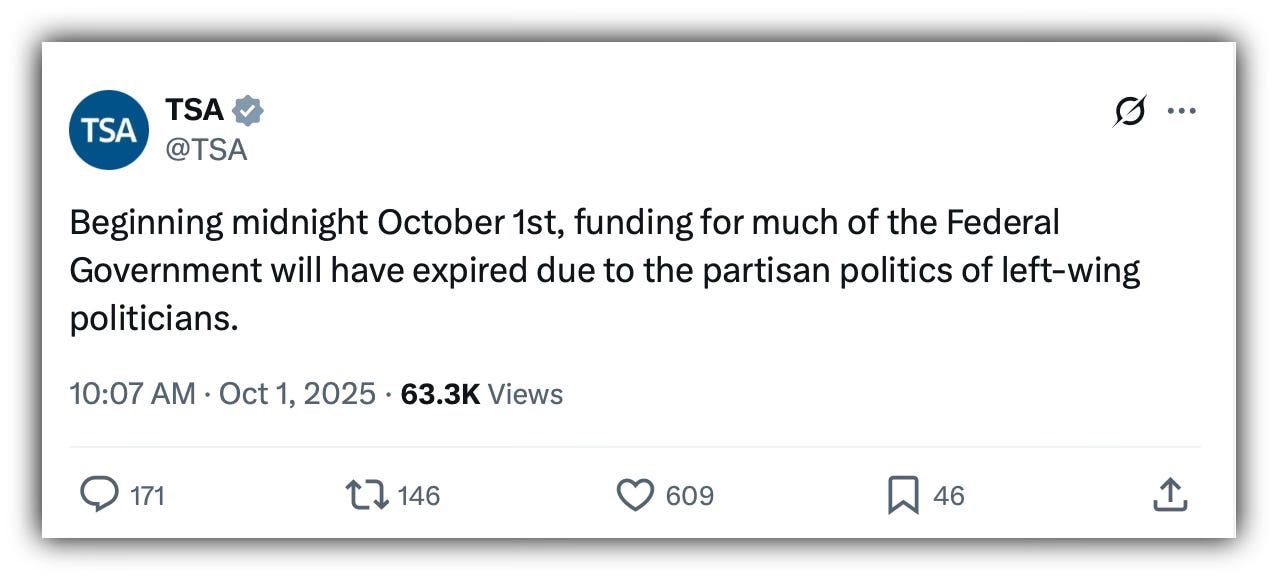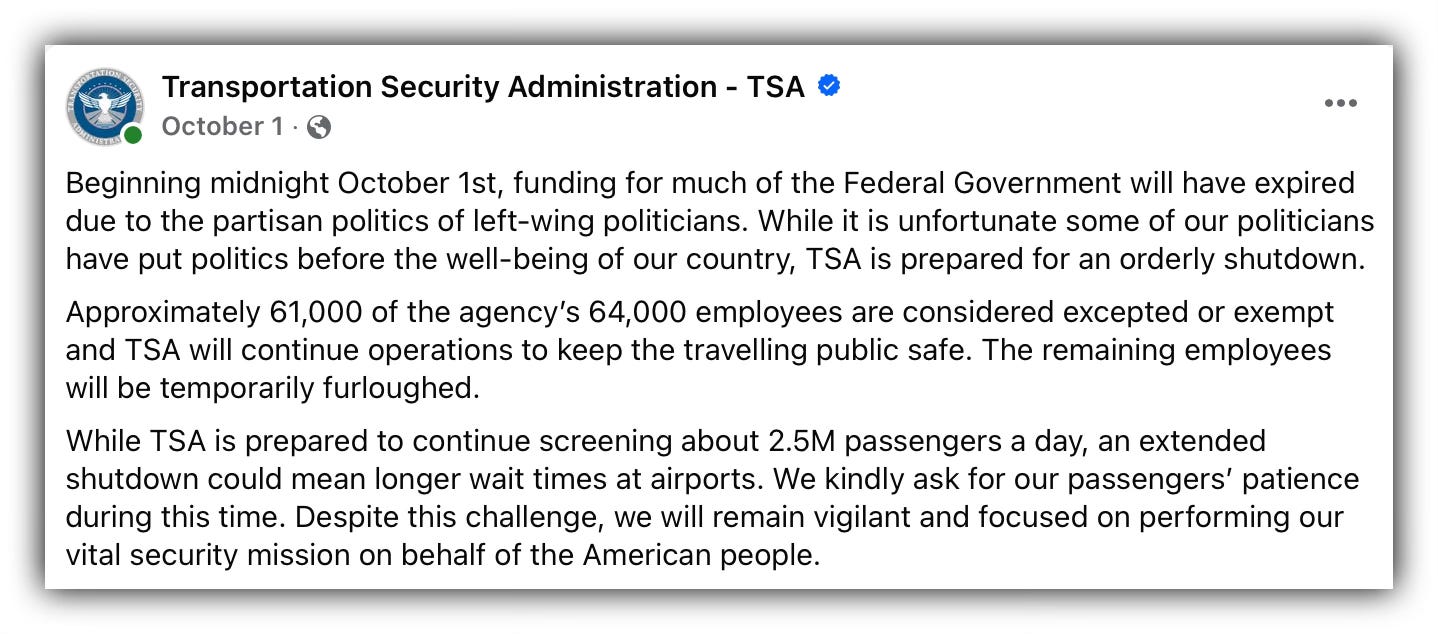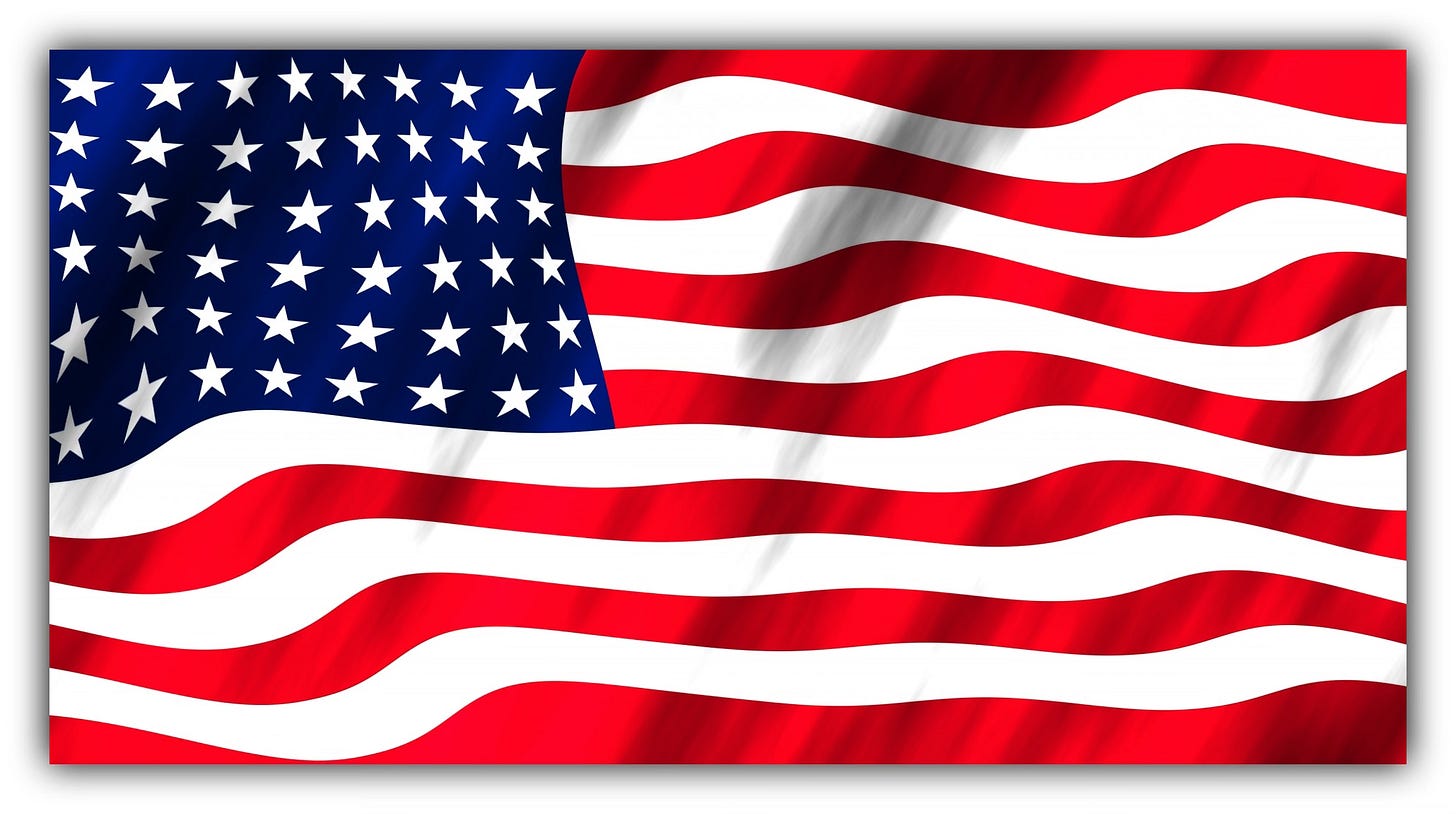When a government agency speaks, it speaks with the authority of the United States.
By Gina Hill | Alaska Headline Living | November 2025
Federal agencies exist to serve the public, not political parties. That principle is so vital to the functioning of a democratic republic that Congress wrote it into law through the Hatch Act, a statute designed to keep federal operations free from partisan influence.

Yet recent controversies show how that line can blur. The Transportation Security Administration (TSA) drew national criticism after posting a message blaming “left-wing politicians” for the federal government shutdown.

Shortly after, a Department of Homeland Security (DHS) video featuring Secretary Kristi Noem was distributed to airports nationwide, assigning shutdown blame to one political party while standing in front of TSA equipment.

For many watchdogs, airport authorities, and travelers, this raised an obvious question: Where is the line between public information and political messaging and did this cross it?
When Federal Messaging Turns Political

The Hatch Act prohibits federal employees from using their official authority or government resources to influence partisan political outcomes. That includes:
- Endorsing or opposing political parties or candidates
- Distributing partisan content while on duty
- Using government platforms, facilities, or equipment for political messaging
The TSA post and DHS video both engaged directly in partisan blame assignment—an activity federal agencies must avoid when acting in their official capacity.
In the case of the Noem video, the response from airports was swift.
Airports That Declined or Removed the Kristi Noem Video
Many U.S. airports immediately refused to play the DHS-produced video, citing neutrality policies, state law, and Hatch Act concerns. Confirmed airports include:
- Albany International Airport (ALB) – Removed video after public and media concern.
- John F. Kennedy International Airport (JFK) – Declined due to policies banning partisan content.
- LaGuardia Airport (LGA) – Same as above; refused to air it.
- Newark Liberty International Airport (EWR) – Declined under Port Authority neutrality rules.
- Seattle–Tacoma International Airport (SEA) – Rejected the video as partisan.
- Portland International Airport (PDX) – Cited Hatch Act concerns and Oregon law.
- Phoenix Sky Harbor International Airport (PHX) – Declined under airport policy against political messaging.
- Harry Reid International Airport (LAS) – Refused based on neutrality requirements.
- Charlotte Douglas International Airport (CLT) – Rejected; noted TSA does not control their screens.
- Pittsburgh International Airport (PIT) – Declined due to contractual and neutrality restrictions.
The broad resistance underscores how unusual the video was: airports regularly display federal safety briefings, security reminders, and public-service information—but not partisan commentary from political appointees.
Why the Hatch Act Matters
The power of the federal government is immense. Its neutrality is not optional—it is essential.
The Hatch Act ensures that:
- federal employees do not leverage their authority to influence elections,
- government resources are not used to advance partisan agendas, and
- Americans of all political stripes can trust that federal agencies serve the nation, not a party.
When agencies cross that boundary, they undermine public trust and drift into legally dangerous territory.
What Americans Can Do

Americans aren’t powerless in this process. Citizens play a direct role in ensuring federal agencies remain neutral, lawful, and accountable.
✅ How to Report a Hatch Act Violation
If you believe a federal employee or agency has engaged in prohibited partisan political activity, you can file a complaint with the U.S. Office of Special Counsel (OSC), the independent federal agency that enforces the Hatch Act.
👉🏿 Online Complaint Form:
https://osc.gov/Services/Complaint-Process/Pages/Hatch-Act.aspx
Mailing Address:
U.S. Office of Special Counsel
1730 M Street NW, Suite 218
Washington, DC 20036
Phone:
1-800-854-2824 (toll-free)
Email:
OSC_HatchAct@osc.gov
Complaints may be submitted by any member of the public, and can be filed anonymously.
A Final Thought
The TSA and DHS controversies are warnings. When government agencies drift into partisan messaging, they erode public trust and stretch the limits of federal law. Neutrality isn’t a partisan issue, it’s a foundation of democratic governance. The TSA and DHS controversies show how easily political narratives can slip into official communications.
Yet, they also reveal something more important: institutions and citizens are still willing to push back.
And, ultimately, it’s Americans who ensure the government stays on the right side of that line.




